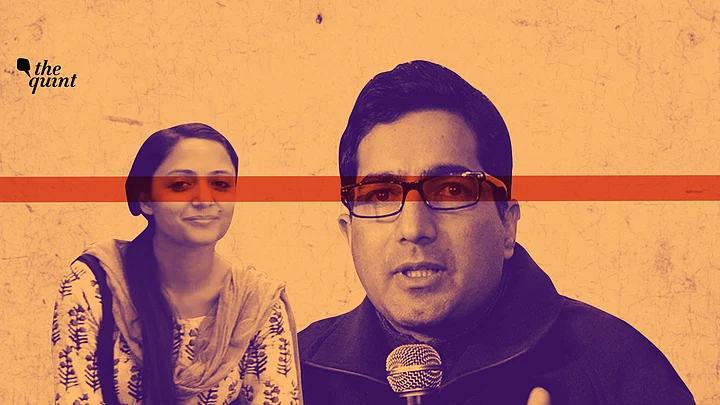A fresh petition has been filed in the Supreme Court of India, challenging the abrogation of Article 370 of the Constitution, and the reorganisation of Jammu and Kashmir into two Union Territories.
JKPM founding members Shah Faesal and Shehla Rashid have been joined by five politicians from other parties and the residents of J&K in filling the new petition, which has been listed for hearing on 28 August in the SC, along with other challenges against the Modi government’s actions.
The petition challenges the two presidential orders passed by the government which together ended J&K’s special status under Article 370 (CO 272 on 5 August and CO 273 on 6 August) arguing that the way these were passed is a “fraud on the Constitution”.
The petitioners have also challenged the Jammu and Kashmir Reorganisation Act 2019, passed on 9 August, on the basis of it being against federalism to downgrade a State without consulting its elected representatives, and that the bifurcation goes beyond what the Parliament can do under Article 3 of the Constitution.
This petition is different from other petitions challenging these moves by the Centre (including the petition filed by National Conference MPs Mohd Akbar Lone and Hasnain Masoodi), in some significant ways.
1. The President’s Rule Proclamation
First, it challenges a cleverly disguised action taken by the Centre back in December 2018, which had flown under the radar, and made downgrading J&K from a State to a Union Territory possible.
In the proclamation for Presidents Rule on 19 December 2018, the Centre included a small line which says that the proviso to Article 3 of the Constitution (which chalks out the Parliament's powers to carve out new States and UTs) does not apply to J&K. The proviso says that the boundaries of a State can’t be alerted without a recommendation of the President, and unless the Bill to do so has been referred to the Legislature of that State for their views.
The removal of the proviso meant that the J&K Reorganisation Act could be passed without the Legislature of J&K being consulted. The petitioners argue this is wrong as it was used to allow a temporary measure (President’s Rule) to make a permanent change.
2. Unconstitutional Concurrence
Secondly, it doesn't just challenge the fact that the J&K Governor's concurrence was used to issue the first presidential order (CO 272) that set the ball rolling, instead of that of an elected government.
It also argues that even if this was possible, the Governor, in this case, didn't apply his mind and properly consider the move, thereby violating Article 14 of the Constitution for being a manifestly arbitrary decision.
3. The Importance of a Recommendation
Thirdly, it argues that CO 273, passed under Article 370(3), which removed most of 370 and modified the remaining clause to apply all of the Constitution to J&K, was not wrongly passed.
This was not just because no equivalent of the J&K Constituent Assembly has a recommendation to do so, as is required by Article 370(3), but also because the usage of the word recommendation rather than consent in that clause meant that the presidential order was void.
The Centre tried to get around this requirement by modifying the interpretation clause of the Constitution insofar as it applied to J&K to say that the term ‘Constituent Assembly’ could be read as ‘Legislative Assembly’.
Then, as the Parliament was carrying out legislative functions, it said a resolution by the Parliament was enough to justify CO 273.
The new petition, however, argues that the use of the word ‘recommendation’ in Article 370(3) means that a positive decision by an appropriate body was needed, a body which could actually make such a decision, which in this case would have to have been a body of elected representatives of J&K.
